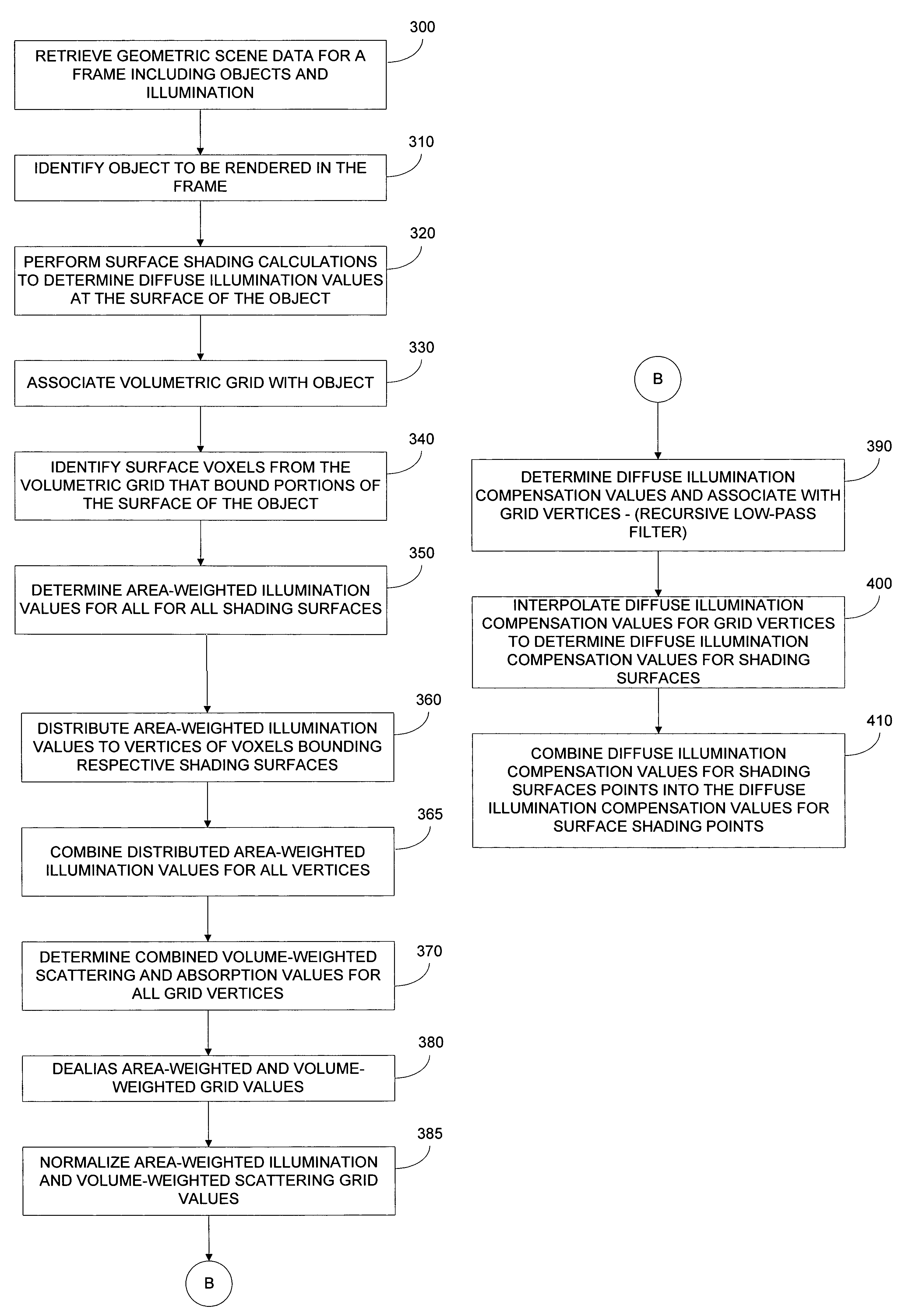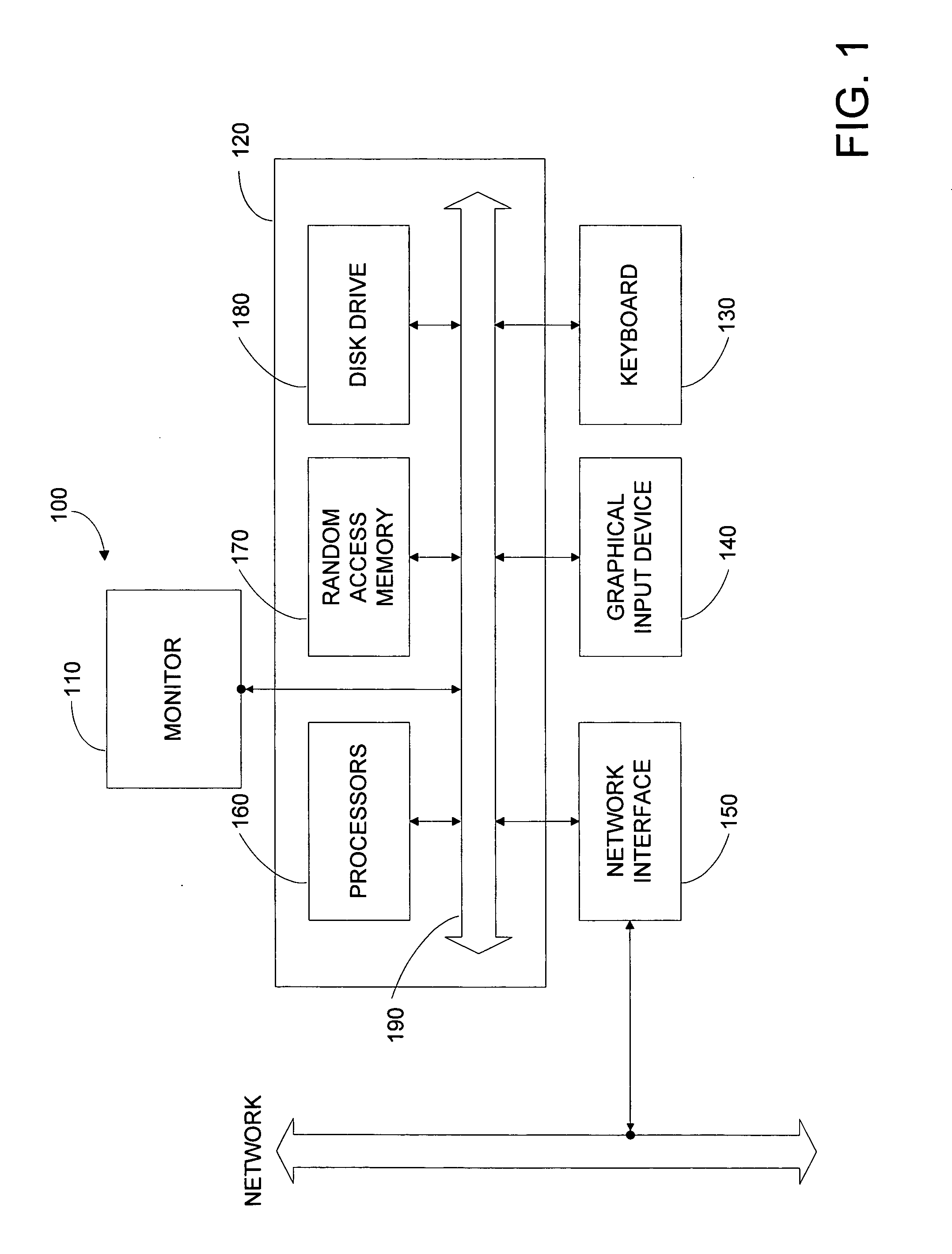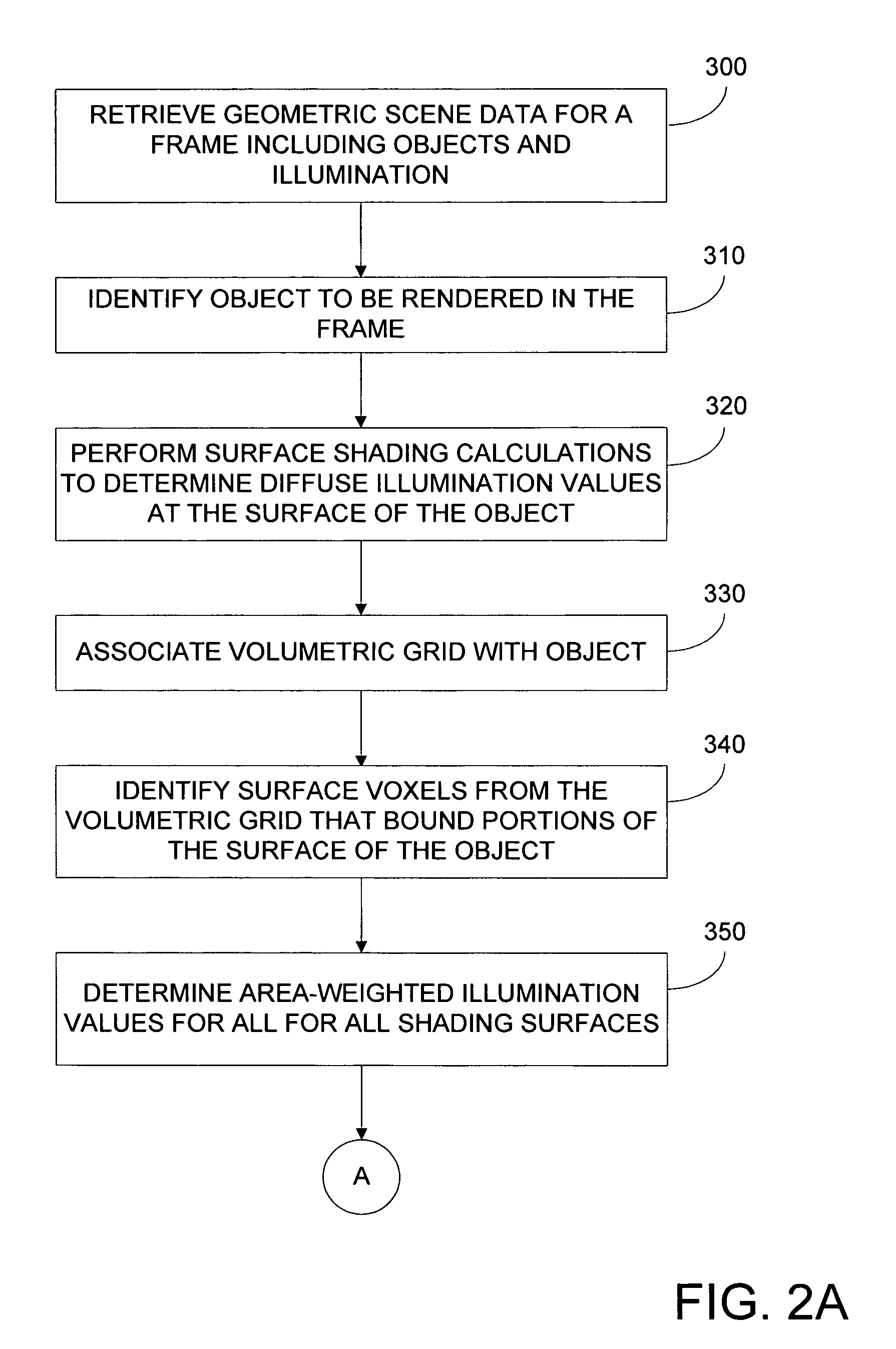Color compensated translucent object rendering methods and apparatus
a transparent object and color compensation technology, applied in the field of computer animation, can solve the problems of not addressing the fundamental problem, the surface based approach suffers from technical difficulties in the parametric representation of sample locations, and the approach is generally very time-consuming, and achieves smoothness across multiple geometry elements
- Summary
- Abstract
- Description
- Claims
- Application Information
AI Technical Summary
Benefits of technology
Problems solved by technology
Method used
Image
Examples
Embodiment Construction
[0033]FIG. 1 is a block diagram of typical computer system 100 according to an embodiment of the present invention.
[0034]In the present embodiment, computer system 100 typically includes a monitor 110, computer 120, a keyboard 130, a user input device 140, a network interface 150, and the like.
[0035]In the present embodiment, user input device 140 is typically embodied as a computer mouse, a trackball, a track pad, wireless remote, and the like. User input device 140 typically allows a user to select objects, icons, text and the like that appear on the monitor 110.
[0036]Embodiments of network interface 150 typically include an Ethernet card, a modem (telephone, satellite, cable, ISDN), (asynchronous) digital subscriber line (DSL) unit, and the like. Network interface 150 are typically coupled to a computer network as shown. In other embodiments, network interface 150 may be physically integrated on the motherboard of computer 120, may be a software program, such as soft DSL, or the ...
PUM
 Login to View More
Login to View More Abstract
Description
Claims
Application Information
 Login to View More
Login to View More - R&D
- Intellectual Property
- Life Sciences
- Materials
- Tech Scout
- Unparalleled Data Quality
- Higher Quality Content
- 60% Fewer Hallucinations
Browse by: Latest US Patents, China's latest patents, Technical Efficacy Thesaurus, Application Domain, Technology Topic, Popular Technical Reports.
© 2025 PatSnap. All rights reserved.Legal|Privacy policy|Modern Slavery Act Transparency Statement|Sitemap|About US| Contact US: help@patsnap.com



